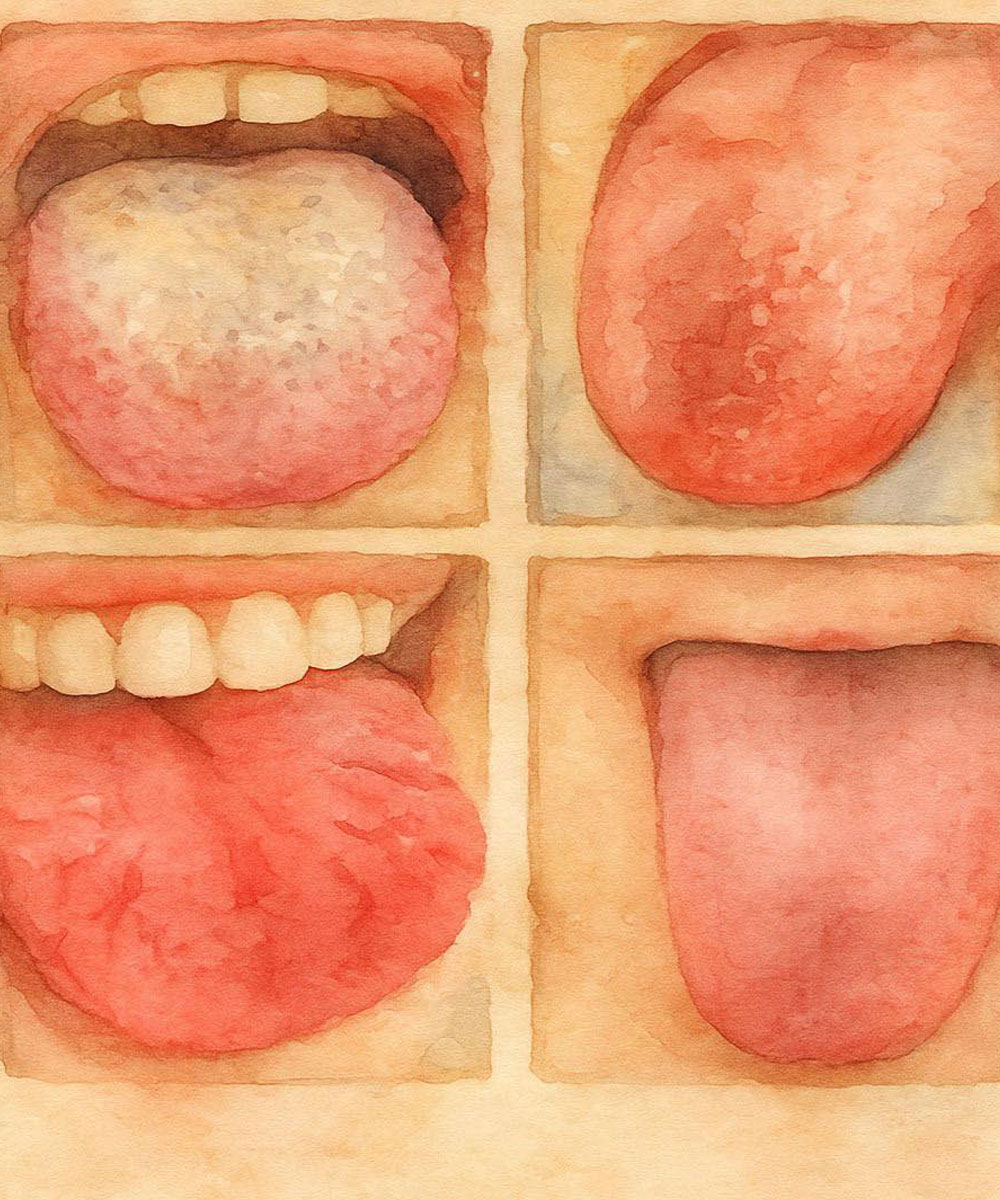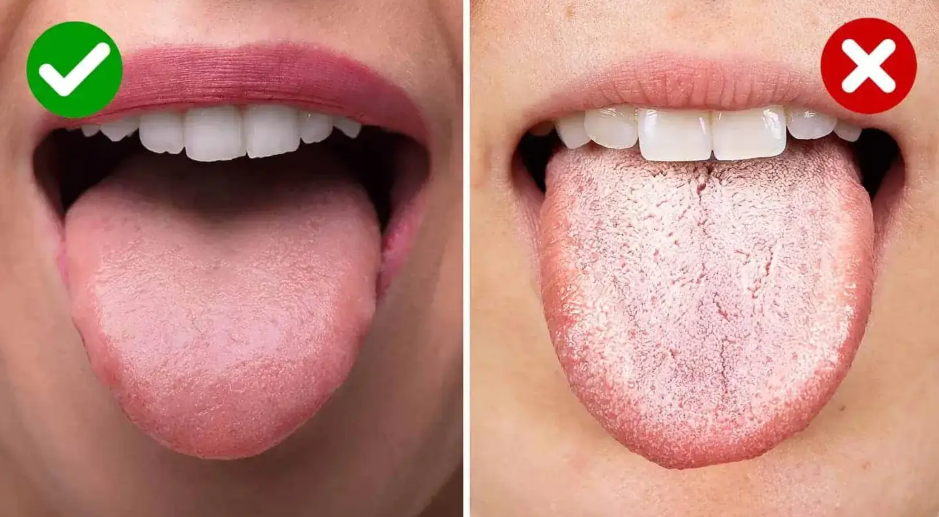
The tongue is a fundamental organ in our body, not only for its role in eating and speaking, but also because it can clearly reflect our overall health. Its color, texture, and appearance can provide valuable clues about internal imbalances, nutritional deficiencies, or underlying medical problems.
A healthy tongue is normally pink, moist, with a light whitish coating, and without noticeable cracks or lumps. Any significant change in its appearance can be a warning that shouldn’t be ignored.
For example, a very red tongue may indicate a deficiency in B vitamins, especially B12 or folic acid. It may also reflect fever or an allergic reaction. A pale tongue, on the other hand, could be associated with anemia or poor blood circulation.
If it has a thick white coating or a pasty appearance, this could indicate a fungal infection such as oral thrush. This condition is more common in people with weakened immune systems, diabetics, or those who have taken antibiotics for a long time.

The presence of deep cracks, also known as scrotal tongue, can be a hereditary trait and not necessarily a problem, but if it is accompanied by pain or a bad odor, it should be evaluated.
A geographic tongue, where irregular, shifting spots appear, is generally not dangerous but can be bothersome.
Persistent sores or ulcers that do not heal can indicate anything from stress to more serious illnesses, such as autoimmune disorders or, in rare cases, oral cancer.
On the other hand, a very dry tongue can indicate dehydration, dry mouth syndrome, or medication side effects.
Bad breath is also often related to a tongue that is not cleaned properly, accumulating bacteria and food debris.

Regularly examining your tongue in a mirror is a simple habit that can help you detect early signs of imbalances in your body.
Although it doesn’t replace a doctor’s visit, it can motivate you to seek care if something doesn’t seem normal.
In short, your tongue acts as an internal mirror of your health.
Listening to your signals and paying attention to changes is a practical and natural way to take care of your well-being.















